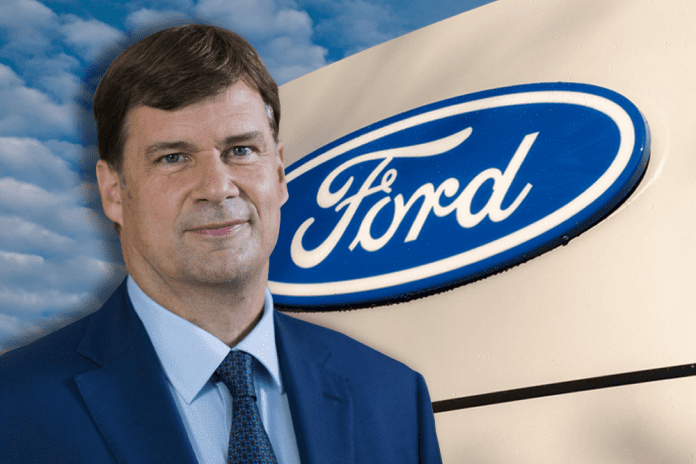In what is likely an attempt to cut costs, increase profits, and compete better with Tesla in the electric vehicle (EV) market, Ford has sent a notice to almost 3,000 of its dealers giving them the choice to opt into one of two “EV-certified” programs before the end of October. Both the “Model e Certified” and “Model e Certified Elite” programs will come at a cost to dealers, and any uncertified dealers will eventually not be eligible to sell Ford’s EVs.
While many factors will come into play when final costs are determined, Ford suggested the Model e Certified tier will cost dealers at least $500,000, a bulk of which will be used to install updated infrastructure needed for EVs. This includes a requirement to install at least one Ford DC fast charger accessible to the public, which can cost up to $250,000. This tier will have access to fewer retail orders each year, which will largely be made up of sales to loyal dealership customers.
Model e Certified Elite members are required to have at least two DC fast chargers, and Ford’s Chief Customer Officer Marin Gjaja reported to Electrek that Ford is estimating these dealers will pay more towards $1.2 million but will have access to more EVs. They will also reportedly “receive an ‘x amount per year’ in EV volume rather than a percentage.”
Ford has also announced that dealers who choose to be Model e Certified and Model e Certified Elite members will not be allowed to haggle with customers over prices. Exorbitantly high dealer markups are currently an ongoing issue throughout the auto industry, and Ford dealers who opt into one of the programs are agreeing to “transparent, non-negotiable pricing.”
Overall, there are five criteria that all EV-certified dealers will need to meet in order to stay in compliance. These include regular employee training, clear pricing, investments in charging infrastructure, offering preferred physical “experiences” (e.g., home delivery), and providing customers with positive digital experiences.
Dealers must make a decision on whether or not to opt-in by October 31st, and those who choose to partake must make the investment by the end of 2022. Beginning on January 1, 2024, dealers who have opted out of both programs will not have authorization to sell Ford’s EVs but will be able to make a commitment for the next round of certification that will start at the beginning of 2027.
Speaking to dealers this week, Ford Chief Executive Officer Jim Farley said, “The main message I have for the dealers, which I’ve never said before, because I didn’t believe it was true, is that you could be the most valuable franchise in our industry.”
Of course, one of Ford’s main goals with the new rules for dealers is to further the automaker’s push to compete more effectively with Tesla, which has a hold of most of the EV market in the United States. Ford feels it has an edge on Tesla due to its existing nationwide network of dealerships, but the automaker recently pressed dealers to slash their vehicle delivery costs by $2,000 in an attempt to mirror Tesla’s direct-to-consumer sales model.
Farley has referred to a new sales process as a “low inventory model,” which involves customers ordering vehicles and having them shipped to their houses.
In setting the new standards, Ford is also clearly acknowledging the need for fast and convenient charging, as that is one of the major obstacles automakers are facing when trying to convince gas-powered car owners to make the switch to EVs.
Did you enjoy this article? Please share your thoughts, comments, or questions regarding this topic by connecting with us at newsroom@cbtnews.com.
Be sure to follow us on Facebook, LinkedIn, and TikTok to stay up to date.
While you’re here, don’t forget to subscribe to our email newsletter for all the latest auto industry news from CBT News.





